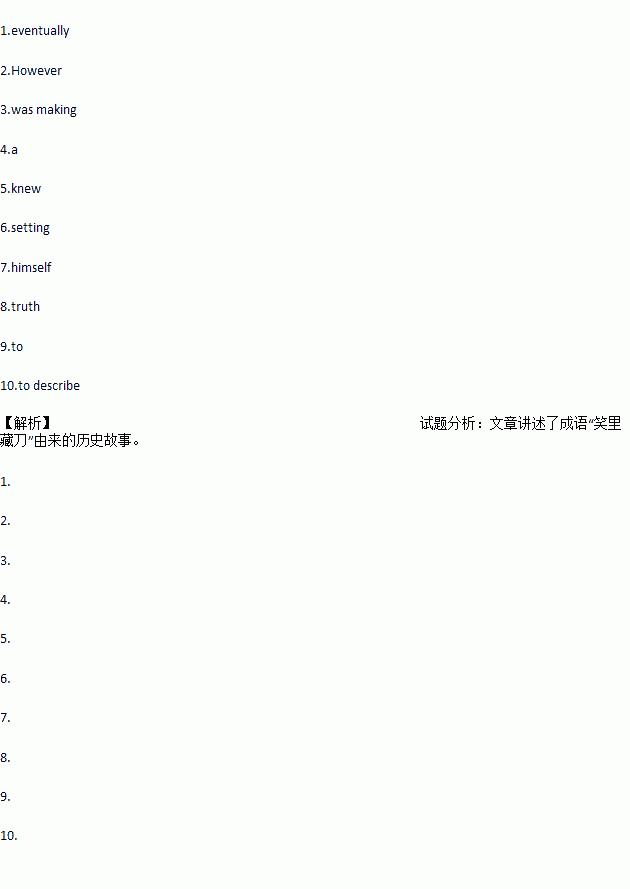题目内容
During the Tang Dynasty(618—907),there was a minister named Li Linfu.He was very good at flattering people,so his official position was raised higher and higher and he 1. (eventual) became the prime minister.2..,Li was a violent and cruel man.When he talked with people he always wore a sweet smile,but he 3.. (make) up evil ideas in his mind.
One day,Li learned that 4.. beautiful woman was put in prison.He sent for a prison officer and ordered him to set the woman free.The man followed the order and Li took the woman home.
Later,someone reported the case to the emperor.The prison officer was very afraid because he 5..(know) he had committed a crime by 6.. (set) the criminal free.He went to Li for help,but Li ignored him and asked the man not to disturb him any more.The man was so disappointed that he hanged 7.. (he).
Hearing the tragic suicide of the prison officer,another officer wanted to reveal the 8.. (true) to the emperor.Li,however,knew of this plan and began to make false accusations against the officer.The foolish emperor believed Li’s words and exiled(流放) the officer 9.. a distant land.
The idiom “hide a dagger in a smile” is used 10.. (describe) a person with a murderous intention behind his/her smile.
 全能测控期末小状元系列答案
全能测控期末小状元系列答案
